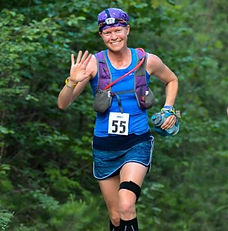
Journal
Guidelines for Authors
SHAPE Arkansas invites research and best-practice manuscripts in HPE/Rec/Dance from faculty, K–12 practitioners, and grad students; submissions are blind-reviewed year-round for an annual journal. Save as a Word file and email to the editor (wthomson@ualr.edu.) Click below for full details.
2025
Expanding the Reach of Recreation Therapy:
Leveraging Social Media for Advocacy, Education, and Inclusion
This passage discusses how therapeutic recreation professionals can use social media to expand education, advocacy, and access to services. By adhering to professional and ethical standards online, recreation therapists can promote wellness, reach global audiences, and strengthen understanding of the field’s positive impact on individuals’ mental, physical, and emotional health.
Modifications for Students with Broca’s Aphasia in Physical Education
This paper explains how students with aphasia—a language disorder that affects speech and communication—can still benefit greatly from participation in physical education. Focusing on Broca’s aphasia, the most common form, it outlines the condition’s key characteristics and provides strategies for modifying PE activities to better support affected students.

Trail Racing in Central Arkansas: Participant Characteristics and Motivation
This study explores the growth of trail sports like mountain biking and trail running in Arkansas, examining who participates and why. With the state facing major health challenges, the research highlights how trail recreation can be a powerful tool for improving public health and community engagement through inclusive outdoor participation.
2024

The Divide in Youth Sports
This paper explores how the growing “win-first, athletes-second” culture in U.S. youth sports harms children’s enjoyment and development—especially those who mature later or are less skilled (“non-elites”). It identifies key factors that marginalize these young athletes and offers strategies for parents and coaches to better support and include them, helping all youth experience the full benefits of sport participation.

Creating Athletes for Life
This review examines how youth sports have become overly focused on elite competition, leaving most children behind. With only 1–2% of students competing, the paper urges a redefinition of “athlete” and promotes shifting toward inclusive, lifetime physical activities that support long-term health and enjoyment.
Hall of Shame
Neil Williams’ JOPERD articles (1992–1996) critiqued common physical education games and practices that failed to build skills, ensure active participation, or provide safe environments. He categorized these flawed activities into a “Physical Education Hall of Shame.” This article revisits his original work, expanding on his insights and their ongoing relevance to effective, student-centered PE teaching.








